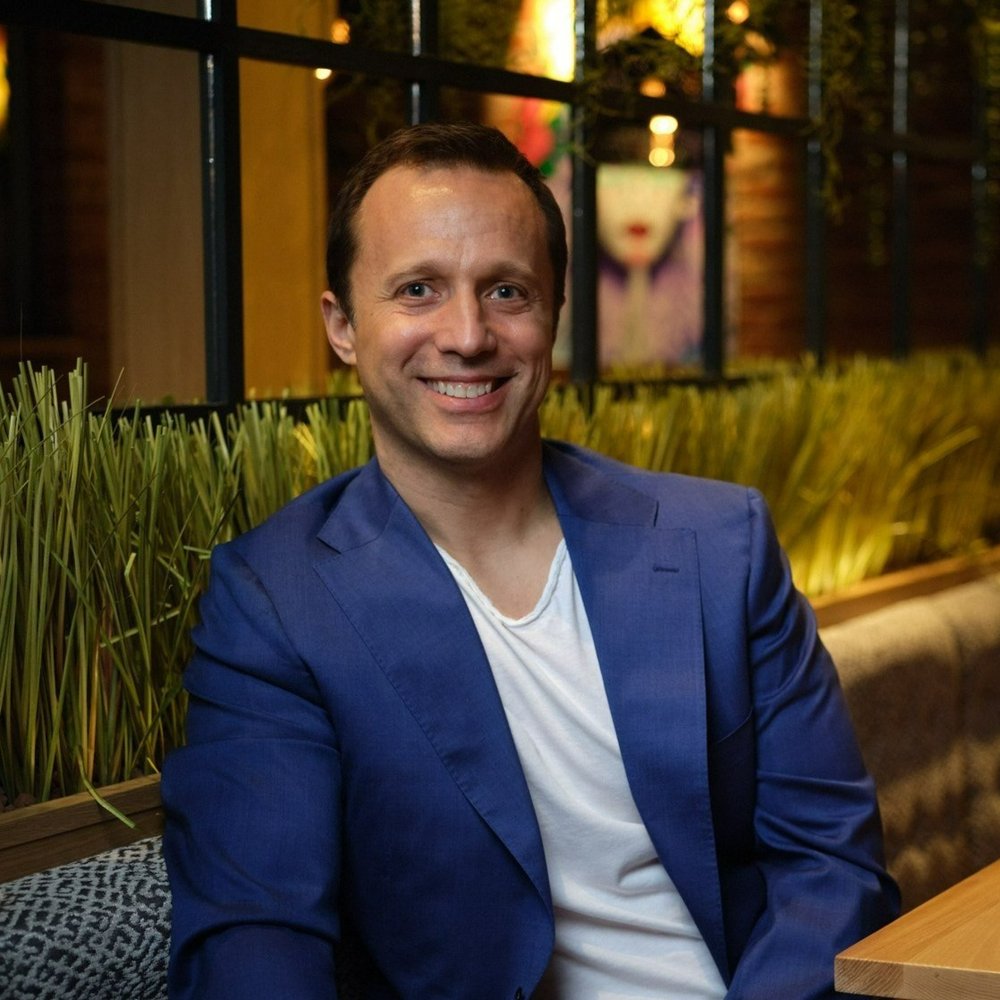
Markus Thesleff is on a roll. “We’ve opened three restaurants in three months,” he says.
“London’s smallest, London’s biggest and London’s oldest” – respectively Juno, the six-seater omakase upstairs from Los Mochis in Notting Hill; Los Mochis City, a vast new operation accommodating 200, with a rooftop terrace above Broadgate Circle; and Sale e Pepe, the classic Italian near Harrod’s that celebrates its 50th anniversary this year.
OK, you can’t “open” a 50-year-old restaurant, so Sale e Pepe is “a refurb, or a rebirth”, Markus concedes. And half a century may not make it quite the oldest restaurant in town. But the point is clear: at a time when the economy is faltering and many hospitality businesses are retrenching or even closing down, the Thesleff Group is accelerating at full throttle.
“When people tell me I can’t do something, that makes me want to do it,” Markus says. “Los Mochis was a two-year project, and when we started everybody was saying the City’s dead after the pandemic. We’ll see…”
The fast-talking Finnish-born, US college-educated restaurateur initially ran nightclubs, but food is his big obsession. “I love food and everything about it, I always have. In my dorm at college, when the others were scoffing mac and cheese I was doing roasts (and I’m not a chef or even a great cook). Even now, I wake up and plan what I’m going to eat today.”
He established himself as a restaurateur over a decade in Dubai before returning to London to set up the Thesleff Group in 2018. The timing could hardly have been worse – Covid struck within 18 months – but Markus believes the trick is to “give people what they want before they know they want it”: you just need to react to changing circumstances better than your competitors.
One of his convictions is that what used to be called “hospitality” is “now part of the entertainment industry. People have realised how valuable their time is, and we’re competing for their time like other parts of the entertainment industry.” This means, among other things, that restaurant service has to be pacier than in the past.
Another conviction is that “what we eat these days is an extension of our personal brand. That has never happened before.” Previously, people had little choice but to eat what life offered them. One consequence of this change for restaurants is that there has to be “huge trust” around eating.
His years in the Middle East also reinforced his belief in the importance of eating together. “The family unit is still extremely strong there, and to break bread together is so central to everything. To sit together, break bread and eat is definitely the best way of connecting with people.”
The contrast between Los Mochis and Sale e Pepe could hardly be more extreme. The former is a brash and vibey operation built around the creation of a new and improbable culinary mash-up, combining the cuisines of Mexico and Japan. The latter is, as Markus puts it, the “old grande dame” of London Italian restaurants – “one of the hardest tables to get back in the day”.
“I used to go with my parents as a teenager, and I have so many memories,” he says.
So when the opportunity came to take it over, he jumped at it. The owner, Toni Corricelli, was looking to retire, and “every big operator wanted to the brand. Toni could have chosen anybody – but he wanted the legacy to continue”.
The pressure to maintain the legacy while also introducing subtle improvements made the relaunch of Sale e Pepe a challenging business, more difficult in many ways than the launch of the massive Los Mochis City – for which, says Markus, there were “zero expectations”.
So the acoustics of Sale e Pepe were overhauled, a sound system was installed, the lighting was improved, the interior was made cosier, the menu and cooking were gently brought up to date. Other things stayed the same, to the extent that the company that supplies the restaurant’s chairs was persuaded to reopen a production line they closed some years ago.
Markus introduced most of these changes without trumpeting them because “everyone has an opinion about whether or not to have tablecloths, about everything”, he says. “You’re dealing with people’s nostalgia, and every change you make you risk firing a lot of your clients.”
The most nerve-wracking day came when he knew Toni was coming back to visit.
“I saw him through the window as he approached, and the look in his eyes and his smile was awesome. Half the team was still there from his days, and they were so happy to see him happy. And so was I. He’s a proper old-school gentleman and I didn’t want to disappoint him.”
The good news is that the local Kensington and Chelsea crowd are “really coming back” to the restaurant, along with professionals in their 30s to mid-40s, bringing down the average age of the clientele.
For his next move, Markus plans to “build on this iconic brand” with a roll-out, capitalising on Sale e Pepe’s big following from the United States – “guys from the top echelons of corporate America who order magnums of superTuscans”. The target cities are New York and Palm Beach – “no independent UK group has really done that”. And if anybody tells him it’s a bad idea, that he’s biting off more than he can chew, Markus will certainly think that he is on to something good.
